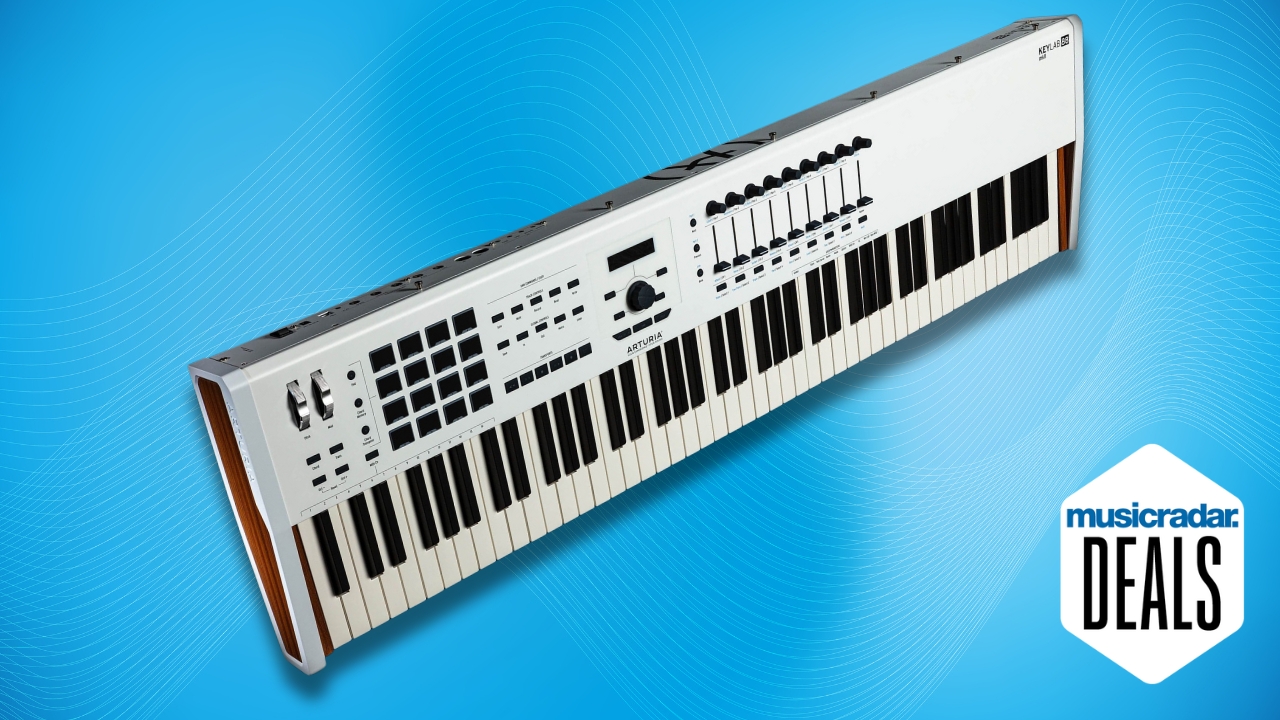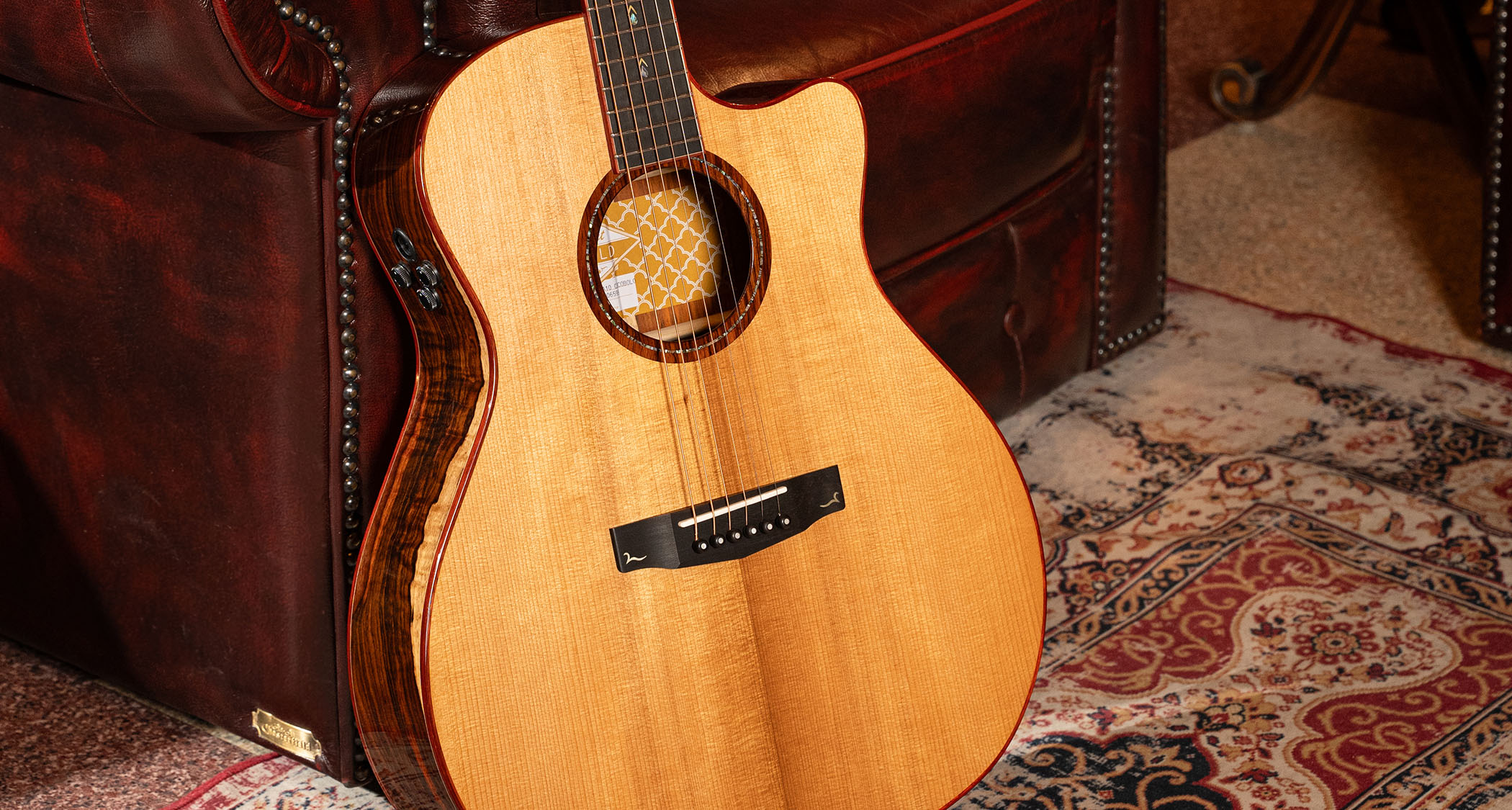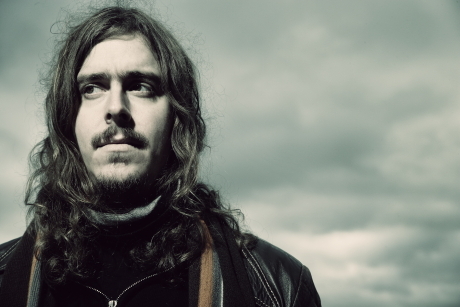
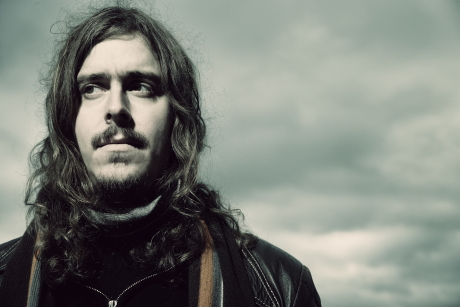
Back in issue 329 (June 2010) we sat down with Opeth's Mikael Åkerfeldt to reflect on being 20 years into a successful career with the Swedish progressive metallers. Here in the full transcript he candidly reflects with us on the musical and personal challenges he's faced over the years. But first, let's go right back to the beginning…
When did you first start playing and what was your first guitar?
Mikael Åkerfeldt: "I was pretty young - I must have been seven or eight years old when I started playing. I got a guitar from my grandmother, a Levin classical guitar. That was the first one but I ended up having two of those and both I kind of… smashed later on.
"I remember being disappointed because I wanted an electric guitar, of course. This just looked like any other - like some Christian vocal group, it wasn't exactly what I was looking for. So I remember painting volume and tone knobs on the top of the guitar!"
Did you come from a musical family?
"Not really. They were interested in listening to music though. My dad was into Elvis and my mother was into Tommy Steele, Cliff Richard and The Shadows.
"It was my grandmother who gave me the guitar and gave me a few chord books. She would improvise songs when we would go over to hers. She was a painter, a poet… very artistic. She had a guitar too and I'd play it every time I was over there. She was always recording me and I remember her playing those fucking tapes whenever we had a family dinner! I have to say she subconsciously helped me to get started."
Get the MusicRadar Newsletter
Want all the hottest music and gear news, reviews, deals, features and more, direct to your inbox? Sign up here.
Do you remember the first riffs you learned?
"Oh, standards - I was a heavy metal kid pretty early on. But in those days I wasn't only listening to heavy metal; I'd listen to whatever was on the radio like Eurovision Song Contest stuff and Abba - shit like that. I was a big fan of David Bowie too. But the first song I learned was probably Smoke On The Water - on the high E string.
"Once I'd learned a few chords I learned The House Of The Rising Sun. I got two books on guitar chords and it had anything from church music to Beatles songs. I didn't learn the Christian songs! The Beatles songs were a bit too complicated for me at the time so I think it was just House Of The Rising Sun."
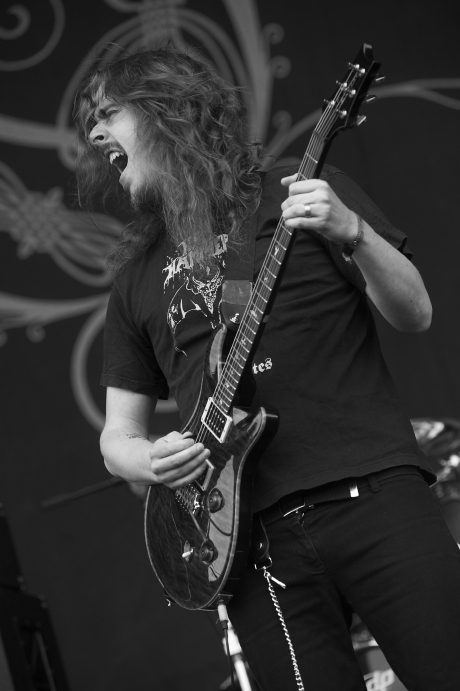
Your first band was Eruption, did you just play covers to begin with?
"I wouldn't say it was a band - it was more me and my friend hanging out when we were 13 or 14; how it is when you're a kid. He had a drum kit in his cellar and I was really into playing guitar. At the time I had a 12-watt Marshall combo, it sounded like an amplified fart through that! I set it up in his cellar and he had an old Gretsch drum kit that basically wasn't really working.
"But we'd hammer away playing improvised songs and riffs, whatever from other bands that we could play. We only played metal songs but I didn't have a pedal at the time so just had full-on distortion constantly. I wasn't playing [The Beatles'] Yesterday if you know what I mean. It was just trying to be loud."
You were asked to join an early Opeth line-up as a bassist originally, what changed?
"Yes, it wasn't a big deal to be honest. Nobody knew about Eruption - at the end of that time we were a three-piece. I was playing guitar and doing vocals, there was the drummer and a bass player too. The only ones who knew about that band were the three of us - we didn't have any shows, demos… nobody knew who the fuck we were except for this one guy [David Isberg] who knew I was playing in a band and we went to school together.
"He had a band called Opeth. We were skateboarders at the time and listening to thrash. He thought I was a pretty good guitar player, I believe. He didn't ask me to come and play guitar because he already had two guitar players in his band. He just asked me to come and play bass because the bass player couldn't play at all.
"That band was just a bunch of friends hanging out at the time. We weren't really friends but that guy had something like a vision, he knew a lot of people and I also liked the name Opeth, I thought it sounded cool. The logo they had at the time was cool too - it was hand drawn with a big inverted cross and gothic font. It was appealing and I wasn't going anywhere with my own band. Even though I didn't want to play bass I thought it was a little bit of a break for me to be auditioning for another band.
"But the other guys didn't know I was coming to the rehearsal - the original bass player showed up too and said, Who the fuck is this guy? They had a huge argument and he fired them. Well we were kids, so five minutes later they had another band and were continuing as normal. Nothing was a big deal in those days - he told them to fuck off and me and him became Opeth.
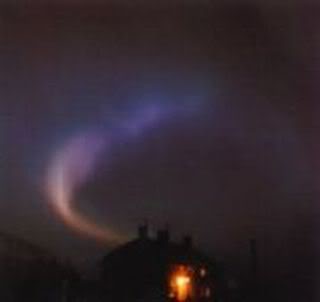
Cover of Opeth's original 1993 Apostle In Triumph demo
"None of the other guys wanted to sing and there was no discussion about it, I just became the singer."
Eventually you took over the role as frontman of Opeth. Was that out of necessity to keep momentum going or did you always have ambitions to be a singer too?
"I couldn't really sing back then and didn't get any feedback on my screaming vocals - so I didn't really know if it was good or if it was shit. I was the singer in Eruption so when David, the original singer from Opeth, left in 1991 or 1992 I became the singer because I was the only one who had been singing before. None of the other guys wanted to sing and there was no discussion about it, I just became the singer."
You recorded Opeth's debut Orchid at 19; the album was recorded and mixed in 12 days. How long had you been listening to progressive rock music at that point?
"Not for very long, maybe two or three years. The early nineties are a blur of death metal bands. I wasn't really listening to anything else apart from a few bands. My best friend at the time was a record collector like me - we were collecting whatever - death metal and thrash, Brazilian black metal… obscure stuff because it was cool to have the stuff that nobody else had. So whenever we had some leftover money we went out buying records.
"He had stuff like Lynyrd Skynyrd. I didn't know who the fuck they were, I don't think I'd even heard Sweet Home Alabama, but they looked cool - they had long hair and bellbottoms. So I started digging around the second hand record stores in Stockholm, and this is when CDs were coming in and everybody was dumping their record collections to buy CDs. So you could pick up anything for like 50p. I could go out into town with the equivalent of £10 and come back home with 20 records. It was so cheap and I picked up anything that looked cool and through that I stumbled on a few bands that I guess were progressive rock. Bands like Yes, you look at their sleeves and you think, I've got to have that - a Roger Dean sleeve looked striking. So I picked up a lot of music like that. I stumbled upon bands so that's how I found a few of those bands."
"I'd dropped the whole being tough idea. I wasn't listening to music because I wanted to be cool anymore. I wasn't afraid."
Orchid has quite a bold sound because of those influences coming through, even at that stage - did it feel like an original move at the time?
"Not really - it felt natural. At the time I'd dropped the whole being tough idea. I wasn't listening to music because I wanted to be cool anymore. I wasn't afraid. The death metal scene at the time was really closed in - you were supposed to be a certain way otherwise you weren't, the word they used at the time was 'true.' Or you were a poseur. And I was a poseur because I wasn't pure; I was into bands like the Scorpions, Judas Priest, Sabbath and Deep Purple. All of which had progressive influences - they were blending styles which I always liked.
"That's what I wanted to bring into Opeth but I didn't see it as something unique, I just thought it was just pretty good music. That's always been the bottom line - and the reason I want to write music to this day is because I want to write something I think is good."
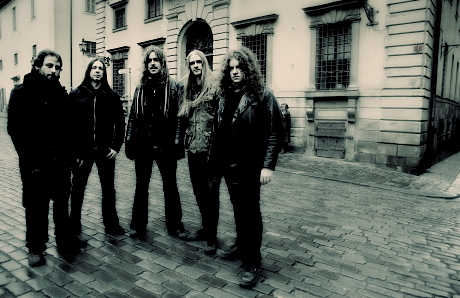
How important was the UK when Opeth became a touring band? Did you gain a small following here early on?
"It's got more to do with that fact that they were the first overseas shows. Our record labels - we had three or four - always had their base in the UK. Candlelight Records were our first record label and they brought us over to play a few promotional shows. Some of them were in small pubs in High Wycombe!
"We played a death metal festival at the Astoria, a show at the Borderline… decent shows. It was impressive for me because we didn't really play much at home back then - or anywhere else for that matter. I was impressed by the fact people were there and listening to us at all. Pretty soon we got features in the magazines there and more people started coming to the shows. And even at the small pub in High Wycombe there were five fans watching us - that's something because at home we had nothing. So ever since we first played in the UK we always had a good following, even though it was absolutely tiny - there was somebody there."
"In those days it was a good way for me to write songs because I was always progressing, moving forwards."
Jumping forwards, Still Life and Blackwater Park signalled a significant rise in Opeth's profile in Europe and they are landmark albums in metal. But looking back on those albums, how well prepared were you as the songwriter going into the studio?
"With Still Life there were no rehearsals, we didn't have a rehearsal room and I didn't have an amp. I had to sell my amp to pay the rent. But the songs were pretty much written - I was confident in those days, I wrote it down on a piece of paper: first riff (four bars) / second riff (four bars) / vocals (same riff, four bars)…I just wrote the song down.
"I came up with the riffs and had to remember them, I had no means to record them and just had to remember how to play them. I remember I was living in a small flat at the time and I just wrote it all down the day before we were going in to record Still Life and I was like, there, done. Actually I had gone to a friend's house to record a few riffs to be honest with you, just trying out a few ideas so there was some type of sound that I had in mind for the album. I never heard the songs though - nobody heard the songs until we had the album.
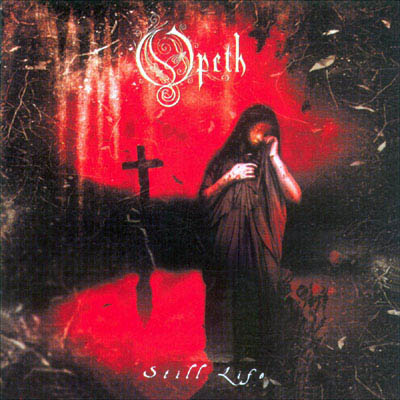
"Nobody knew what they were recording. Martin Lopez did a drum take for two riffs and by the time he went into the third riff he had forgotten the first riff! So nobody had the faintest idea of what it would sound like - it was quite exciting in that respect. But it was also risky. If I discovered that I didn't really like a riff… like when the song is finished and it's all on tape and I'm doing lead guitar on it or whatever and I'm thinking, this isn't a very good riff you know. I'd just put shit loads of stuff on there - disguising the shit riff underneath with lots of Ebows, effects and vocals.
"It was all about being inventive with whatever you had - you had to develop whatever you had. In those days it was a good way for me to write songs because I was always progressing, moving forwards."
How did that compare to the pressure of back to back recording of the Deliverance and Damnation albums?
"I wrote a lot for those albums - I had lots of riffs and short arrangements written back home. I had a little portable digital eight-track. If you had music on all eight channels it was enough for like five minutes on a disc. So I couldn't put an entire song on there even if I wanted to. Besides, I had to program a drum machine manually for every riff and then piece everything together so it was almost like mathematics. So I could only be bothered writing short arrangements - two riffs, piece them together with drum beats. I could never really finish anything off so I left it open for the studio.
"Looking back at Still Life and Blackwater Park, there was a lot of improvisation going on in the studio so I thought, yeah let's do it like that again. Only this time we're going to record two albums.
"It was taking on a little bit more than I could handle. I thought I could do it so I ended up working my ass off through the night but during the first week it went pretty good. Then I started to lose interest and get sloppy because I was so tired - all of a sudden I was writing music just to have something to record the next day. I wasn't really paying attention to whether it was good or shit, basically.
"The band was in a terrible state anyways so with some of those arrangements I couldn't even save them with the layering I was talking about before. I couldn't even make some of it sound decent but I'm still quite surprised that we managed to make those albums. Especially Damnation, I think it's a fine record and parts of Deliverance have become classic Opeth. But it was hell."
So if there was anything you could change from the last 20 years, would the making of Deliverance be the candidate?
"Well I don't believe in changing things so even though there are parts of that record that make me cringe when I listen to them, I do that with some of the older stuff as well. I remember I was superhappy with it at the time. I can't go back and change the past and that's one of the reasons that if I have leftover material from an album, I never bring it when I start to write for the next album. I want to write completely new material. So even though some music didn't end up on a record, it still belongs to that record. I want to start with a clean slate, so to speak."
Damnation was a very brave move for a metal band, people didn't seem too surprised that you'd made an all mellow album at the time though did they?
"I thought it was going to have a bigger impact. People were kind of shrugging, Yeah? Whatever - cool. It didn't have an impact at all it seemed at the time! I was expecting people to either hate it or say, Fucking hell there's this death metal band doing an album like that! With doing Deliverance at the same time I thought people were going to be impressed. I was also aching for some kind of recognition because of what I went through with the recording. I wanted some approval. But what happened was people started downloading the album before it was released and then started slagging it off. So I was like, fuck off you fucking insects!"
That's like shoplifting a Mars bar then going back to the shop to complain you don't like the way it tastes…
"Yes, so I was really upset. But now a few years later people are coming out of the woodwork saying, That album changed my life or that album is what I'll have playing at my funeral. Or I wouldn't have met my wife if it wasn't for that album…"
And it's a good entry point to get into the band too…
"Yes and a lot of people hold that record pretty close to their hearts - all sorts of people from metal people to general music fans. So now I'm getting a little credit for that record."
The acoustic folk-influenced fingerpicking side to your playing is equally as important to Opeth's sound as the metal elements. Is it true that you worked in an acoustic guitar shop and developed that side of your technique there?
"Yes that's true. I was working at a small guitar shop in Stockholm and I was basically doing repairs - I don't know how I got employed there because I didn't know how to repair guitars! But the owner taught me things like how to make a bone nut from scratch, fixing cracks…
"But I was quite disappointed when I first went in there because there were no electric guitars. It was only acoustics - but at least it was still guitars, plus at the end of the day it was a job and I didn't expect to sit around playing all day. But that's what happened; we didn't have many customers because we sold Martin guitars and they're quite expensive. People weren't coming in and buying them for their kids. If you went into that store you were buying a guitar for £3,000. So I ended up playing a lot and there weren't any guitars but steel string, 12-string and nylon string.
"So I was playing a lot and writing a lot for our second album [Morningrise] and developing my technique as an acoustic guitar player. And that's something that made a lot of difference to me as a songwriter, guitar player and musician overall. The years in that store helped me to develop our sound."
Do you usually write on an acoustic guitar these days?
"I write a lot on acoustic but now my situation is a little bit different because I have a home studio. So I can just plug in my electric guitar and off I go. But I always have an acoustic close at hand if I just want to play - and to be honest it's easier for me to come up with something on an acoustic guitar. Everytime you pick it up you'll come up with something and think, oh that's nice. But when you plug in an electric guitar you end up playing some shitty blues!"
But talking of electric guitar, you must be incredibly proud to have a PRS Signature now…
"I'm not proud at all! [laughs] No, I love it, I can't even say it's like a childhood dream because I didn't even think there was a chance in hell that anyone would even give me a guitar, let alone get a signature model with my name on it. It's amazing. I'm pretty fucking proud."
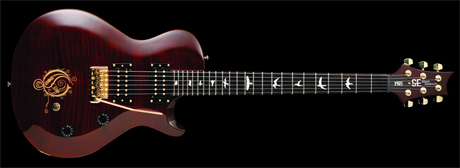
Opeth has a stable line up now but how much of a personal toll has some of Opeth's line up changes taken on you over the years?
"Obviously I can't say I like them but every line-up change has made us into a better band. But people relate to when their favourite album of ours was made by a specific line-up - they think that line-up is better.
"For me, from the inside, [changes] always made us progress and ultimately turned us into a better band. But, line-up changes, what can I say? I hate them. I wish - to a certain extent - that we were the same guys who played together in 1989. Ultimately you lose touch with these people who were once really good friends and it's tough. Mostly from the friendship point of view I have to say.
"Peter leaving [Lindgren, guitar 1991 - 2007] was fucking rough for me. [Martin] Lopez [drums 1997-2006] wasn't really rough, we were friends of course but we weren't really hanging out. He was asked to join the band as a drummer and I'd never seen the guy in my life before he came to meet us. But Peter and I had been friends before we played together. So with some of these guys it's been very difficult, almost to the point that I didn't know whether I wanted to go on anymore. Like when the first drummer [Anders Nordin 1990-1997] who played on the first two records, left. When he left I was like, okay, that's it for me."
"Obviously I can't say I like them but every line-up change has made us into a better band. But people relate to when their favourite album of ours was made by a specific line-up - they think that line-up is better."
So there were points where you nearly gave up on Opeth?
"Well that was one definitely. But then I just realised that I'm still a musician. They can leave and go work at Ericson or whatever but I still love this. Once I realised that, the friendship type of thing took a little bit of a back seat. Not that I became ruthless and didn't want to be friends with my band members, not at all. But whatever happens won't change my interest and my goals. But it's rough, not fun."
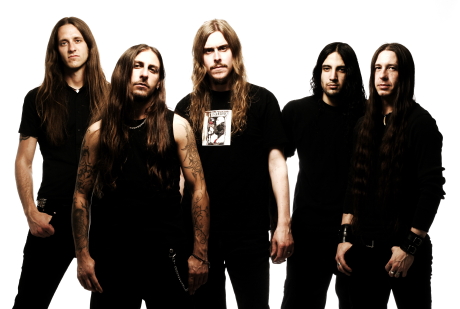
Opeth Ghost Reveries line-up circa 2007: Former guitarist Peter Lindgren (left) and drummer Martin Lopez (second right)
Peter's replacement, Fredrik Åkesson is held in high esteem by other metal players, but he has a reputation as a technical shredder. Do you think Opeth's given him the chance to show a more soulful side and will we see more of that?
"He is a shredder. He's a typical shred player in that's what he loves. He loves learning licks by shredder guys, he buys all the magazines. When he's got Guitarist magazine he goes straight to the techniques section which I'm completely uninterested in! But he loves it. But one of the reasons he's in the band is that he has another side to his playing - he's very musical and has this great tone. Fantastic tone. I didn't get him into the band because of his shredding.
"To be honest I'm not a big fan of shredding for the sake of playing fast. He can definitely do that but I'm holding him back a little in the shredding department. I want a guitar solo to be, wow - it has to serve the best interest of the song. So even though it's his solo spot it's also part of the song and I can't have a really fast shredding solo that I hate. That would just bring the song down so it has to be very musical. And the thing is, he loves that stuff too - once he nails solos that fit the song it's a whole different thing to putting down fast runs.
"So I'm hoping that people are going to see him as just a great lead guitar player, as opposed to competing with shredders. Because there's always someone who's going to play faster and I heard some of that on the videos that come with the magazines. And I'm like, that fucking sucks. I'm not going to name drop but some of these guys aren't musicians, they can't hear music. It's not interesting at all to me. In fact I get irritated - it's like measuring penises. I hate that stuff."
You pay a lot of attention to drum parts when you're writing, do you think guitarists often overlook that interaction?
"Oh yeah - especially lead guitar players who'll complain that the guitar solo is too low in the mix, turn it up! Maybe I'm wrong and there's a lot of people that aren't like that but it seems like many lead guitar players have a really shitty sense of rhythm and they can't play rhythm guitar and they can't write songs because they're so focused on shredding. I can't shred but I can do some of the other stuff and I can't understand how you can overlook the song. And the song starts for me with, say the drums. That foundation has to be there first before you can shred."
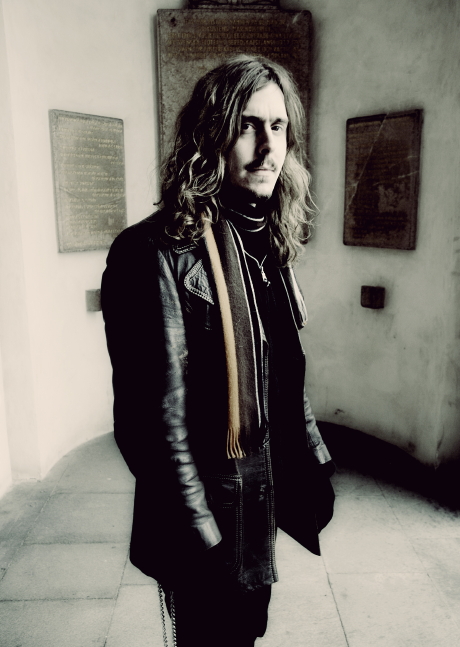
Are you now able to look back through your career with the band and identify songs that were key to what came after them?
"Sometimes you'll do something you consider to be a bit daring - like on the second album we had a ballad called To Bid You Farewell, which was cool but I was anxious to see what people would think. Once people said, I like that stuff, it made it easier for me to write more that blended it up more. It was important for developing that softer side of the band.
"I guess there's one song per album that makes you go, Hmmm that's a bit odd."
You've mentioned recently that there's a possibility of you making a solo acoustic album - is this still on your mind?
"Yes it is. I'm actually working on a song for it now. I'm working on one Opeth song and a solo song. But I did a vocal line and it was horrible! I'll have to do something better. The thing with this so-called solo album is it might not be released but it's something I want to do for me - to produce an album from scratch in my home studio without any help."
With that in mind, who are you inspirations on the singer / songwriter side of things?
"Nick Drake, Joni Mitchell, Jackson C. Frank… some of the acoustic guitar players too. I want it to be a good guitar record but the most important thing is I want it to be good songs on there. But it's going to be pretty simple and a bit melancholic sounding I guess.
"Nick Drake and Joni are in my blood so to speak - both my kids were born when Bryter Layter was playing. And Joni Mitchell, I listen to her and I can cry. I feel safe in her music. It's something that goes beyond a good record. I don't expect anything to be as moving as a second of their music but I just want to do it for me and see if it can be something."
"I also like some of the newer cats - Tommy Emmanuel is one. I wouldn't say he sounds like Bert Jansch but the mindset is similar."
It's interesting to hear you mention Jackson C. Frank - he's something of a 'lost' folk hero really isn't he and like Nick Drake, his life tells quite a sad story…
"I first heard him about five or six years ago and I didn't know who he was. Then somebody played me a song called I Want To Be Alone. Wow. And then there's a lot of his songs that Nick Drake covered - I think he did half of that first album, the only album. It's on [Nick Drake's] bootleg recordings. I've seen a few interviews with Bert Jansch where he says, that guy started that scene in 1965 or '66. It's beautiful music. I was lucky enough to find a copy of the original vinyl from a seller in the UK. I'm very happy with that but it put me back £250! But I had to have it."
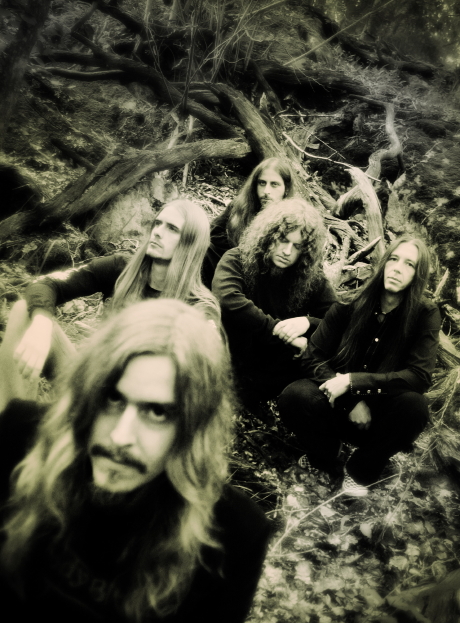
"I can be like the Antichrist when it comes to people interfering with the music."
Difficult question but 20 years in, what are your proudest achievements so far?
"That is a difficult question. I don't ever feel particularly proud in the sense of, Look at me I did this and that. I'm happy with every new album."
And it's all without compromise…
"Yes definitely. Musically I don't compromise for anyone. If you ask me to do it a certain way you can just fuck off, if you know what I mean. Once the music and the lyrics are done I can be a bit of a whore if that's what the label wants me to do - I'll do their interviews, I'll do whatever they tell me to do in order to promote the record and work. But when it comes to the music it's sacred to me.
"I can be like the Antichrist when it comes to people interfering with the music. Not the band, that's not a problem at all but if a record label executive came up to me and said, That riff is not good, I would probably headbutt him: shut the fuck up and sell the record."
Opeth are getting bigger all the time, are the pressures of the business greater on you now personally?
"Yes there's a lot of pressure. Once the album is done it's relentless. I immediately go into four weeks of press trips and another two weeks of 'phoners. Then the tour and interviews everyday on the tour. And a lot of people want to speak to me because I write most of the music and I write the lyrics, I'm the frontman. So I understand but it's fucking tedious so for me personally there's massive pressure on me at all times.
"But I'm trying to get the other guys involved - especially in the interviews part, helping me out and I think it's important for them because I tend to be such a control freak about the music and it's important for them to have an opinion. I want them to do more interviews - they don't necessarily want to but I want to do less! When Opeth is in the magazine I don't just want it to be me on the cover, I want it to be the band."
Opeth's new DVD/CD set In Live Concert At The Royal Albert Hall is available now on Roadrunner Records.

Rob is the Reviews Editor for GuitarWorld.com and MusicRadar guitars, so spends most of his waking hours (and beyond) thinking about and trying the latest gear while making sure our reviews team is giving you thorough and honest tests of it. He's worked for guitar mags and sites as a writer and editor for nearly 20 years but still winces at the thought of restringing anything with a Floyd Rose.
“I can write anything... Just tell me what you want. You want death metal in C? Okay, here it is. A little country and western? Reggae, blues, whatever”: Yngwie Malmsteen on classical epiphanies, modern art and why he embraces the cliff edge
“You're by far the best guy that we've tried. I would love to have you in the band”: So why did Trent Reznor turn down Richie Kotzen for Nine Inch Nails?








